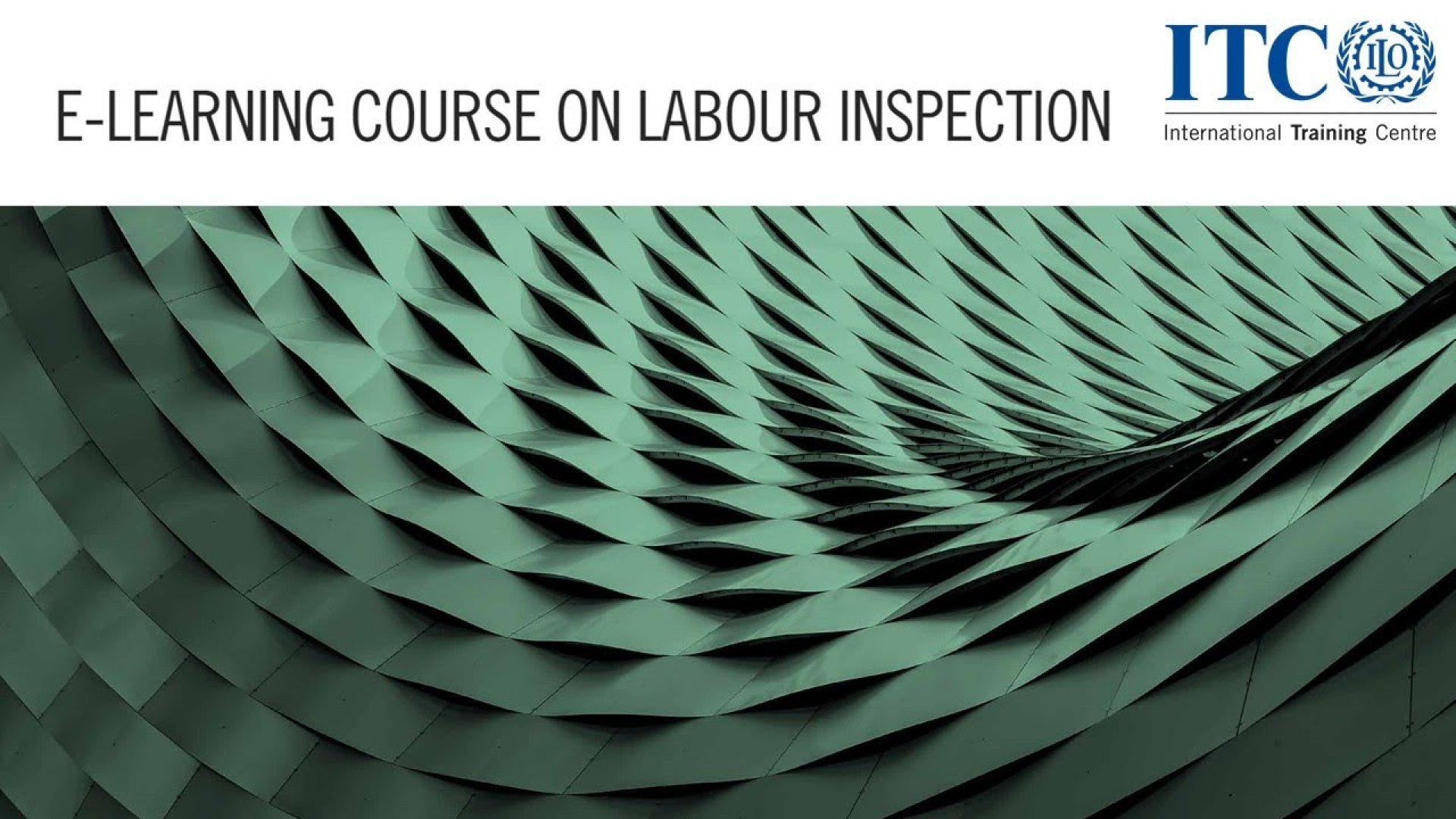E-learning course on labour inspection

Photo © Unsplash/Ricardo Gomez Angel
Online
E-learning course on labour inspection
6 May–28 June 2024
Introduction to the course
Labour inspection is an important public function provided by the State and is an essential part of the labour administration system. Labour inspection plays a key role to ensure fairness in the workplace and good governance of the labour market. Labour inspection has a three-fold role: - secure the enforcement of the legal provisions relating to conditions of work and the protection of workers while engaged in their work (provisions relating to hours, wages, safety, health and welfare, the employment of young persons); - supply technical information and advice to employers and workers concerning the most effective means of complying with the legal provisions; - bring to the notice of the competent authority defects or abuses not specifically covered by existing labour law provisions. The ILO has adopted a number of international labour standards relating to labour inspection, the most important one being the Labour Inspection Convention No. 81, which establishes the principles, functions and main characteristics of labour inspection, with a focus on industry and commerce. In supporting ILO member States, LABADMIN/OSH (the ILO Service responsible for Labour Administration, Labor Inspection and Occupational Safety and Health), has developed a programme curriculum for developing the capacity of Labour inspectorates to fulfill their functions and maximize their impact. To this end, and based on this training curriculum, the ILO International Training Centre offers this online course to increase the skills of managers and field labour inspectors as well as for other relevant stakeholders.
Who attends this course?
This course is aimed at: - Labour inspectors from central or provincial levels; - Managers from the labour inspection system; - Officials from the labour administration system involved in labour protection; - Employers' and workers' representatives with special interest in labour inspection; - Trainers from labour administration/inspection training institutions; - ILO officials and staff from technical cooperation projects; - Experts, researchers and consultants in labour-related issues. The ILO promotes equality of opportunities and strongly encourages women's applications.
Objectives
At the end of the training programme participants will be able to:
- Describe the principles, functions and main characteristics of labour inspection;
- Identify the key issues to take into consideration in the preparation, conduction, and follow-up of an inspection visit;
- Describe the main issues concerning the inspection of working conditions;
- Describe labour inspection of key occupational safety and health issues;
- Explain the differences and inter-linkages between various compliance strategies;
- Apply a set of indicators to identify the employment relationship;
- Identify the applications of the main tools for labour inspection activities.
Contents
The course consists of 7 modules:
- Introduction to labour inspection: principles, functions and main characteristics;
- Strategies of compliance;
- Inspection of working conditions;
- Inspection of the employment relationship;
- Inspection of occupational safety and health;
- Labour inspection visit;
- Tools for labour inspection.
Format and methodology
This innovative e-learning course has been designed according to a learner-centred approach in order to better involve participants and keep them motivated. Different methods will be used such as storytelling, scenarios, videos and interactive activities to make the content interesting, relevant and also entertaining.
The course will be held entirely online in asynchronous mode (without live sessions). It consists of 7 modules. Each module contains texts, videos, quizzes and/or assignments. Participants can learn from any location, any time of the day or night as the course is delivered through distance learning. Participants will be required to read selected texts, complete quizzes and/or assignments and a final exam relating to the different modules, and make comments on specific issues in a dedicated forum.
After completing each module and submitting the quiz or assignment through the course platform, the participant will be given access to the next module. A tutor will provide assistance and support throughout the distance-learning phase.
Participants who successfully complete the quizzes or assignments required (one per each module) and the final exam will receive a Certificate of Achievement.
Duration and course load
The course will have a total duration of 8 weeks. The total course load of 60 hours requires an average of 7.5 hours of study per week.
Applications and Fees
Participation cost (1,080 Euros) including tuition and access to the e-campus.
To apply, please complete the online application form on this link:
https://oarf2.itcilo.org/MIF/A9717124/en no later than 19 April 2024.
The application should be accompanied by a letter from the sponsoring organization committing to cover participation cost.
For information regarding payment, cancellation and refunds, please visit this webpage: www.itcilo.org/applications-payments-cancellation



